Turkey Demands EU Help In Syria, Denies Using Migrants As Blackmail
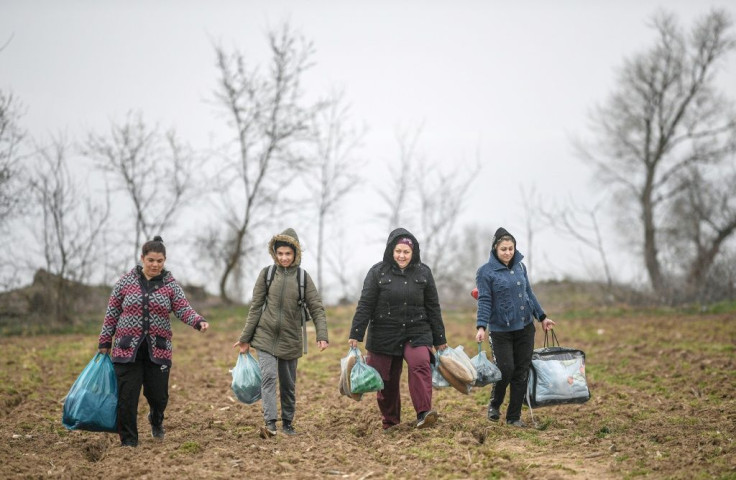
Turkey demanded EU help on Wednesday for its mission in Syria as the price of resolving a fresh migrant crisis on its border with Greece, but rejected European accusations that it was 'blackmailing' the bloc.
Clashes have broken out between police and refugees at the Turkey-Greece border where thousands of migrants have gathered since President Recep Tayyip Erdogan gave them the green light to leave for Europe last week.
Erdogan's move came after Russian-backed Syrian forces killed 34 Turkish troops in northern Syria, prompting him to seek greater assistance from the international community.
But EU leaders now fear a repeat of the migrant crisis of 2015-16, when more than one million migrants crossed into the EU.
With mounting tensions around the border crossing at Pazarkule, a Turkish official claimed one migrant had been killed and five injured by live fire from the Greek side.
Athens strongly denied the claim, but an AFP photographer earlier saw a migrant shot in the leg -- it was not clear whether by a live round or a rubber bullet -- as a group of refugees tried to cut their way through fencing.
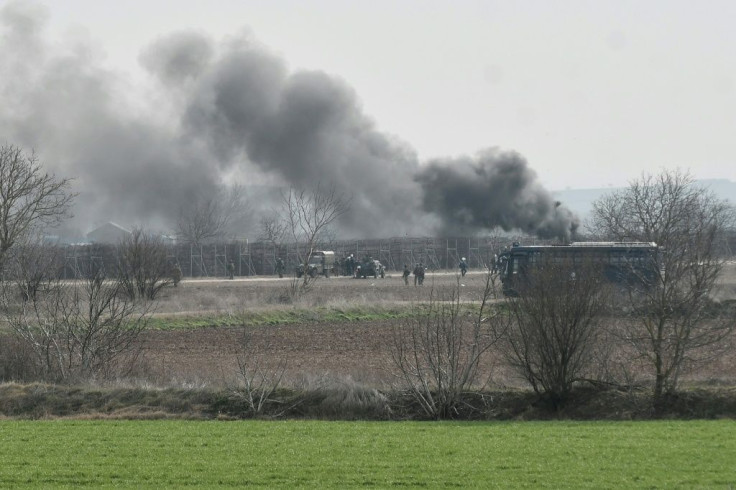
The group then threw stones at the Greek police, who responded with tear gas, while multiple shots and cries could be heard.
Athens released a video apparently showing Turkish police firing tear gas at Greek border guards, which could not be immediately verified.
Speaking in Ankara, Erdogan said Europe had to support Turkey's "political and humanitarian solutions in Syria" if it wanted to resolve the situation.
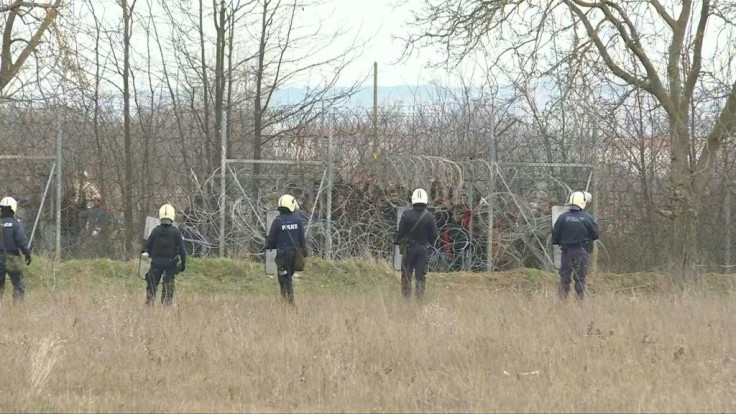
Government spokesman Ibrahim Kalin denied this was blackmail.
"Our objective by opening the doors was not to create an artificial crisis, to place political pressure or to serve our interests," he said, but Turkey's capacity "has a limit".
Turkey already hosts some four million refugees, most of them Syrians, and has been fighting the Syrian government in a bid to prevent another influx from Idlib, the jihadist-dominated region that has been under attack by Damascus since December.
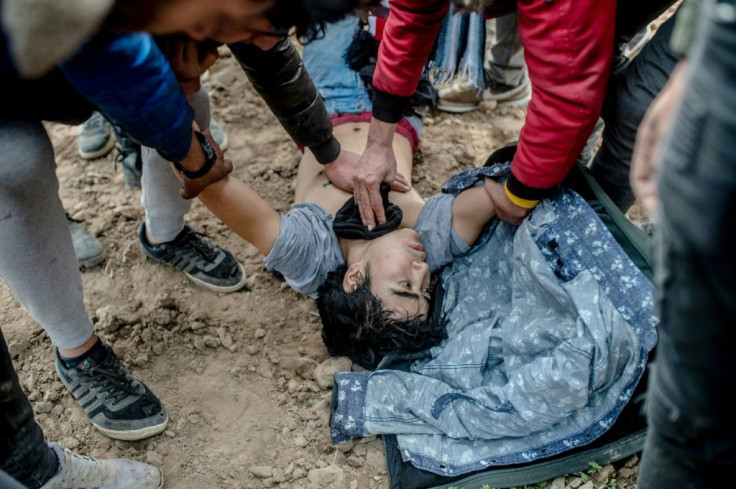
Close to one million people in Idlib have been displaced by the government assault, which is backed by Russian air power. Those fleeing are currently blocked from entering Turkey.
EU foreign policy chief Josep Borrell and Council President Charles Michel met with Erdogan in Ankara on Wednesday, pledging an additional 170 million euros ($189 million) in aid for vulnerable groups in Syria.
But Turkish presidential spokesman Ibrahim Kalin later on Wednesday urged the EU to produce a "road map" of the management of the funds.
Borrell said the EU recognised the "difficult situation Turkey is facing" but that Turkey's green light to migrants could "only make the situation worse".
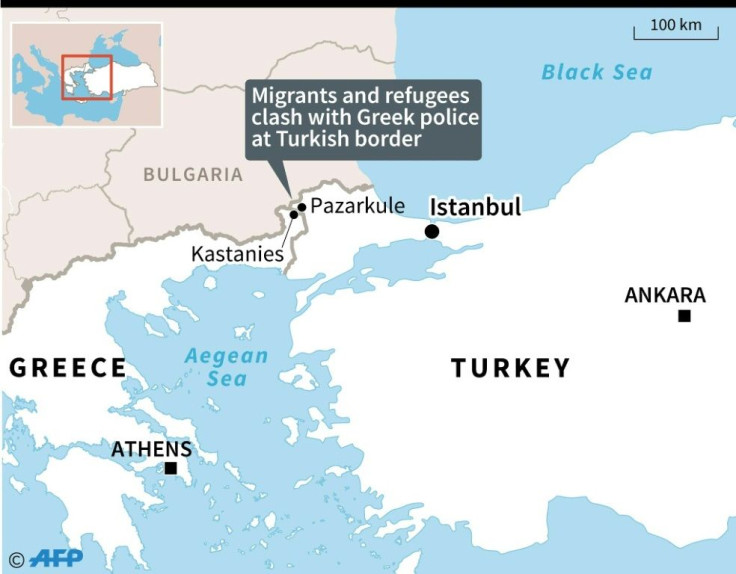
France took a firmer line. Foreign Minister Jean-Yves Le Drian said the EU's borders were "closed, and we will ensure they stay closed".
Despite being on opposing sides of the nine-year war in Syria, NATO-member Turkey and Russia have kept lines of communication open.
But the relationship has been heavily strained, with more than 50 Turkish soldiers killed in Idlib in recent weeks, and three more reported deaths on Tuesday and Wednesday.
Erdogan said he hoped a ceasefire would be "swiftly established" when he meets his counterpart Vladimir Putin in Moscow on Thursday.
Ankara officially announced an offensive against Syrian forces over the weekend, demanding they pull back behind lines agreed under the 2018 Sochi deal with Russia. It killed nine government troops in drone strikes, a monitor said Wednesday.
"We expect Russia to fulfil its promises as a guarantor country and stop the regime's attacks and to use its influence to ensure the regime adheres to the Sochi deal's borders," Turkish Defence Minister Hulusi Akar said, according to broadcaster NTV.
But many say Russia is determined to see the Syrian government regain full control of its territory.
"There might be a ceasefire announced after the talks between Putin and Erdogan but it'll be for show," a Western diplomat told AFP.
The EU has scrambled to respond to the surge of migrants at the Greek border, where authorities say some 24,000 were stopped from entering between Saturday and Monday.
Turkey agreed in 2016 to stop the flow of refugees in exchange for billions of euros, but says the EU failed to honour other parts of the deal, such as visa liberalisation and an improved customs agreement.
Meanwhile, Greece sent a navy ship to the island of Lesbos to house some 500 people, many of them families with small children, who managed to reach its shores over the weekend.
© Copyright AFP {{Year}}. All rights reserved.





















